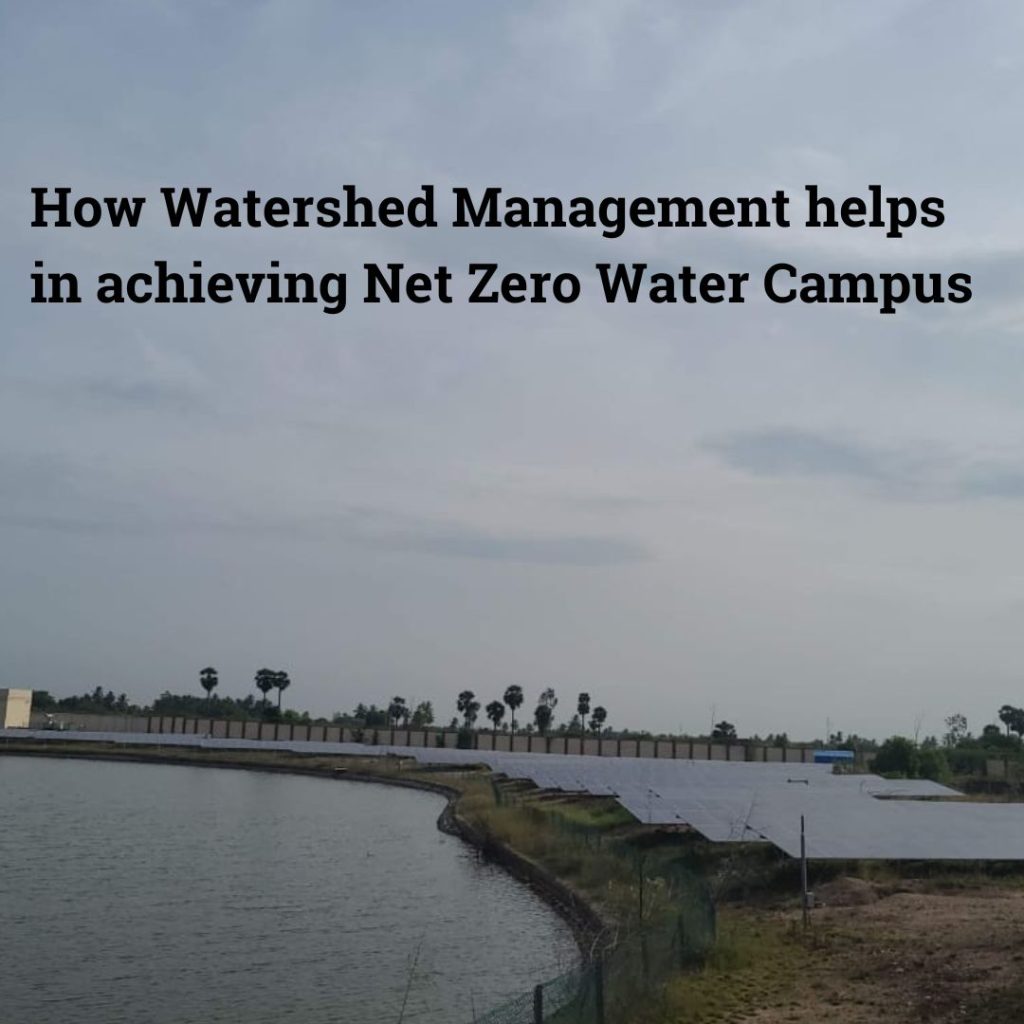
A watershed is any area of land that drains or “sheds” water into a specific waterbody like ponds, lakes, streams, and rivers.
Watershed management is a process of implementing land use and water management practices to protect and improve the quality of water and other natural resources within a watershed.
The watershed management is critical for addressing a wide range of socio-environmental challenges, and it contributes to the overall sustainability and resilience of ecosystems and human communities.
Each watershed is unique in geography, ecology, climate, water quality, land use, and human culture.
Therefore, approach to watershed management must be customized to each place/location when put into practice.
Watershed management requires a long-term commitment that is adaptive to changes in population, climate, culture, and resource-use demands.
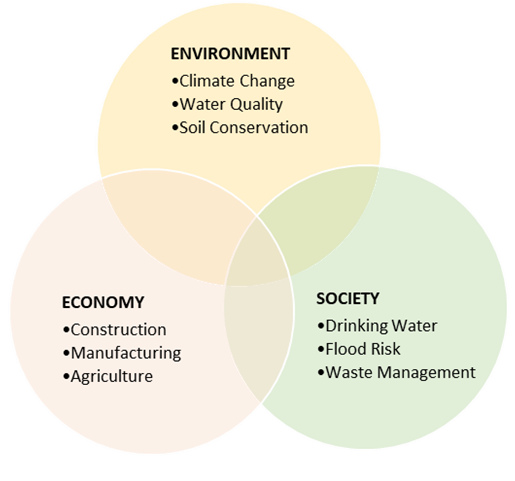
Components of Watershed Management
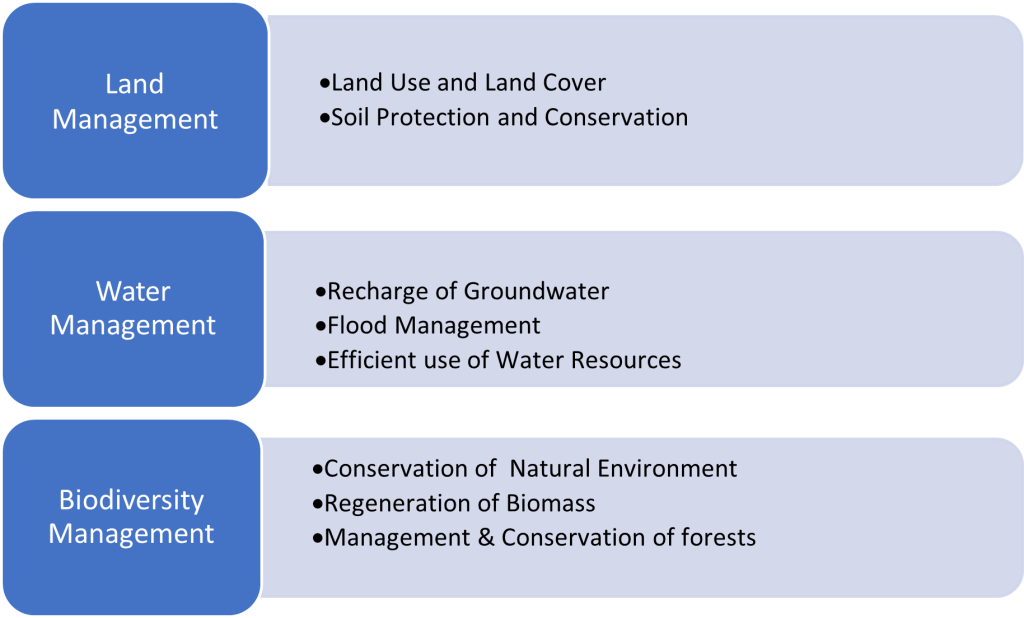
Benefits of Watershed Management

Technologies that Aid in Integrated Watershed Development
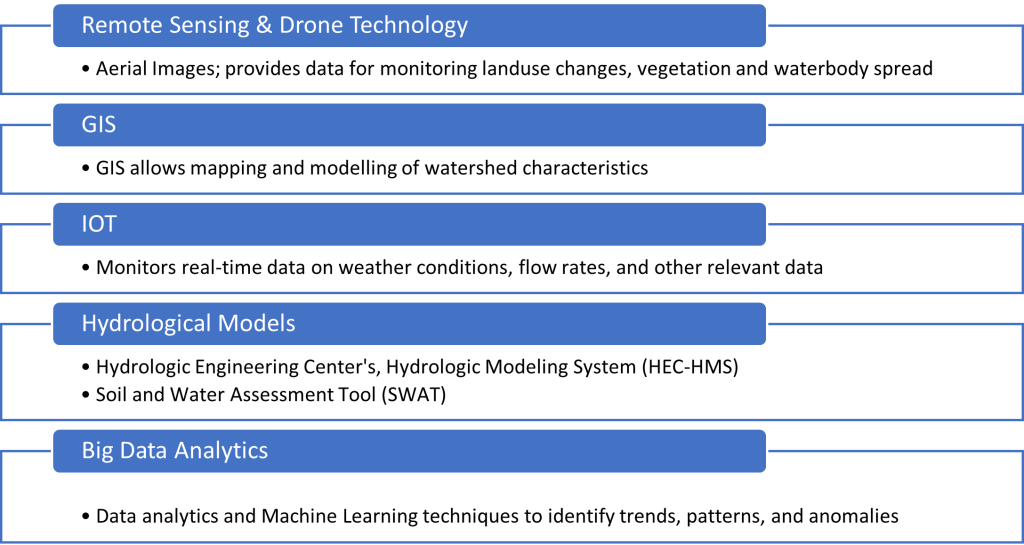
Case Study of Integrated Watershed Development: IIM Trichy
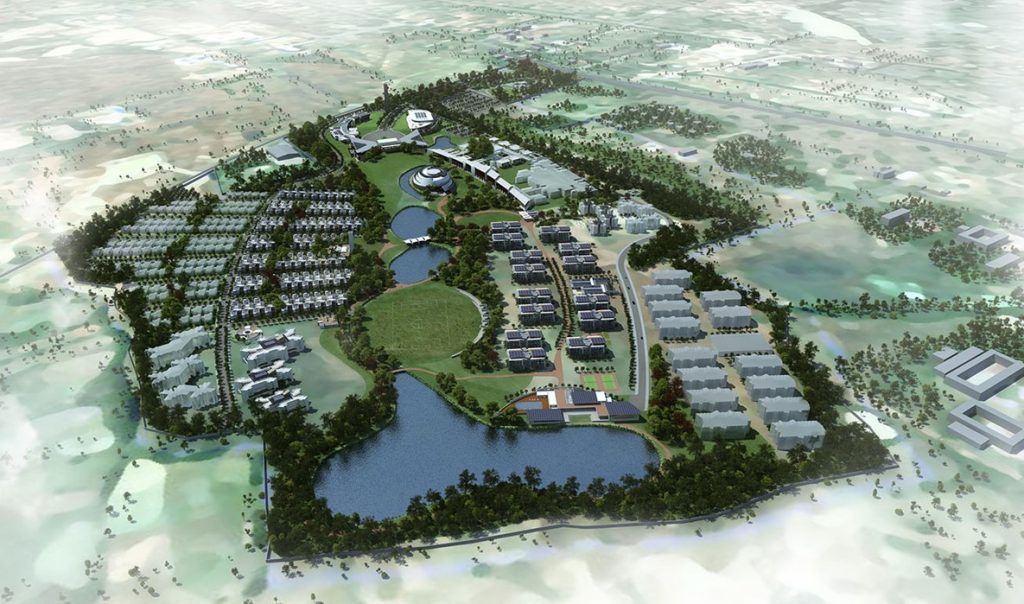
The Indian Institute of Management (IIM) Trichy, situated on a 172-acre campus, embarked on an ambitious project to transform into a ‘Net-Zero Water Campus.’ This initiative aimed to meet all water needs internally, ensuring a sustainable and self-sufficient water management system. This case study explores how IIM Trichy achieved this through integrated watershed management, utilizing a combination of innovative technologies, nature-based solutions, and systemic analysis.
Design Goals
- Reducing Water Demand: Employing water-efficient technologies to lower overall water usage.
- Creating Alternative Water Sources: Offset the need for external freshwater sources.
- On-site Wastewater Treatment: Reusing or reintegrating treated wastewater back into the water cycle.
- Green Infrastructure Implementation: Enhancing water sustainability through natural solutions.
Methodology
Catchment Analysis
- Objective: Determine the storage capacities and potential of pond systems.
- Approach: Studying rainfall patterns, runoff coefficients, and landscape topography.
Nature-Based Solutions
- Swales and Permeable Pathways: Enhance groundwater recharge and reduce surface runoff.
- Ponds: Central and Rear Ponds designed to capture and store rainwater, contributing significantly to the campus’s water self-sufficiency.
Technological Innovations
- Rainwater Harvesting: Systems align with GRIHA Standards, capturing roof-water, surface-water, and landscape-water.
- Water-Efficient Appliances and Fixtures: Installed across the campus to minimize water consumption.
Wastewater Treatment and Reuse
- On-site Treatment Facilities: Process all wastewater, enabling reuse for non-potable purposes and replenishing the water table.
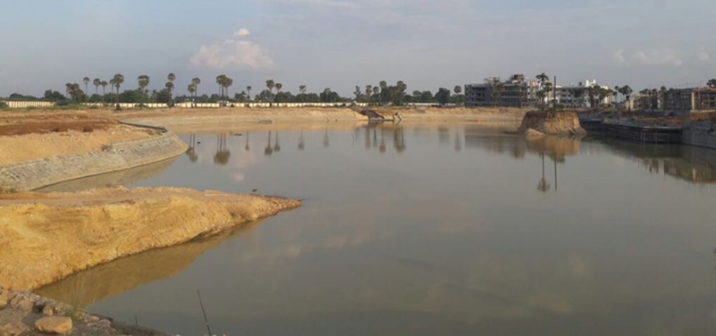
Key Highlights
- Pond Area: 15 acres dedicated to rainwater storage.
- Rainwater Collection Systems: Meet LEED standards, ensuring sustainability and efficiency.
- Water Self-Sufficiency: Achieved through the strategic combination of catchment analysis, nature-based solutions, and technological interventions.
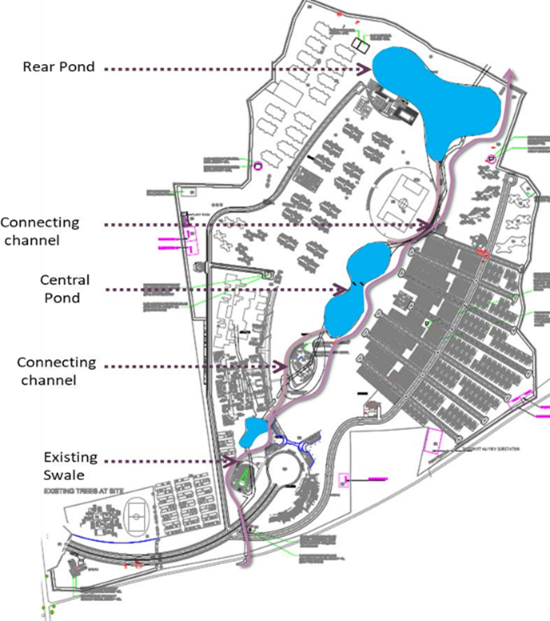
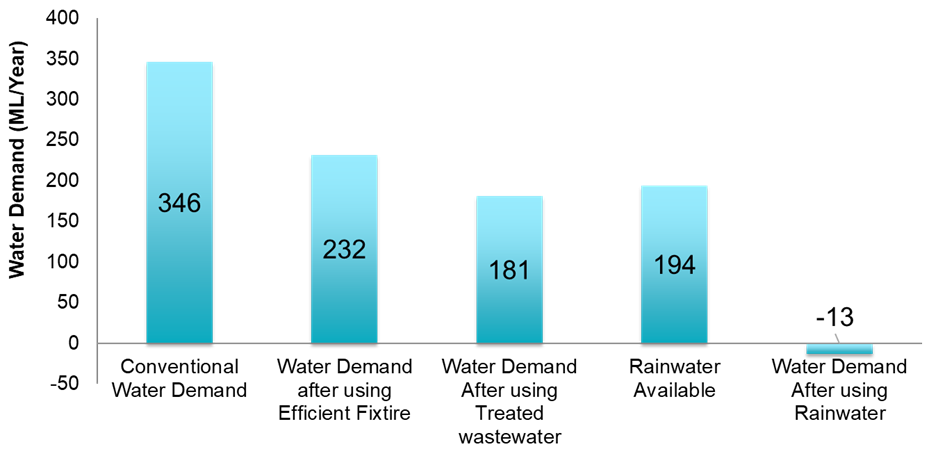
Conclusion
IIM Trichy’s transformation into a Net-Zero Water Campus serves as a benchmark in sustainable water management. Through a blend of catchment analysis, nature-based solutions, and cutting-edge technology, the campus has set a precedent for educational institutions and communities worldwide. This integrated watershed management approach not only fulfils the current water needs but also ensures long-term sustainability and environmental stewardship.
With a proven track record in watershed development and designing net zero water systems, McD BERL offers the necessary expertise and innovative solutions to successfully navigate the complexities of these projects. Whether you are planning a new development or aiming to retrofit existing infrastructure, McD BERL’s team of experts can guide you towards achieving your goals in water sustainability. Contact McD BERL today to explore how they can assist you in making your vision of a water self-sufficient campus or community a reality.




